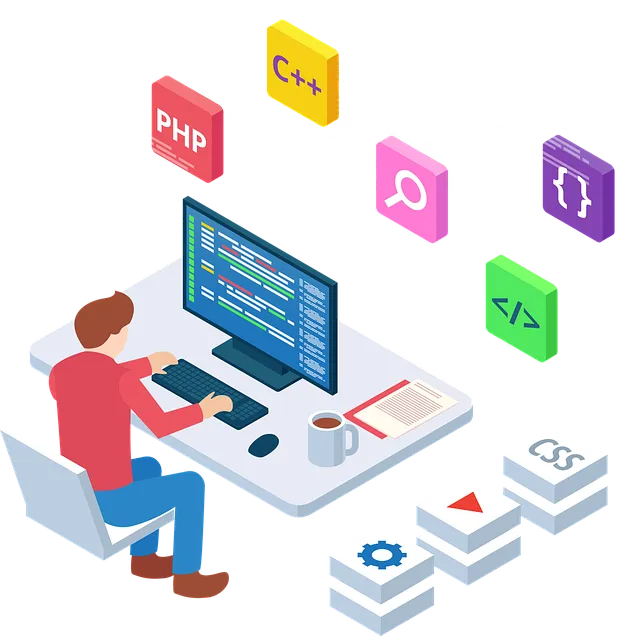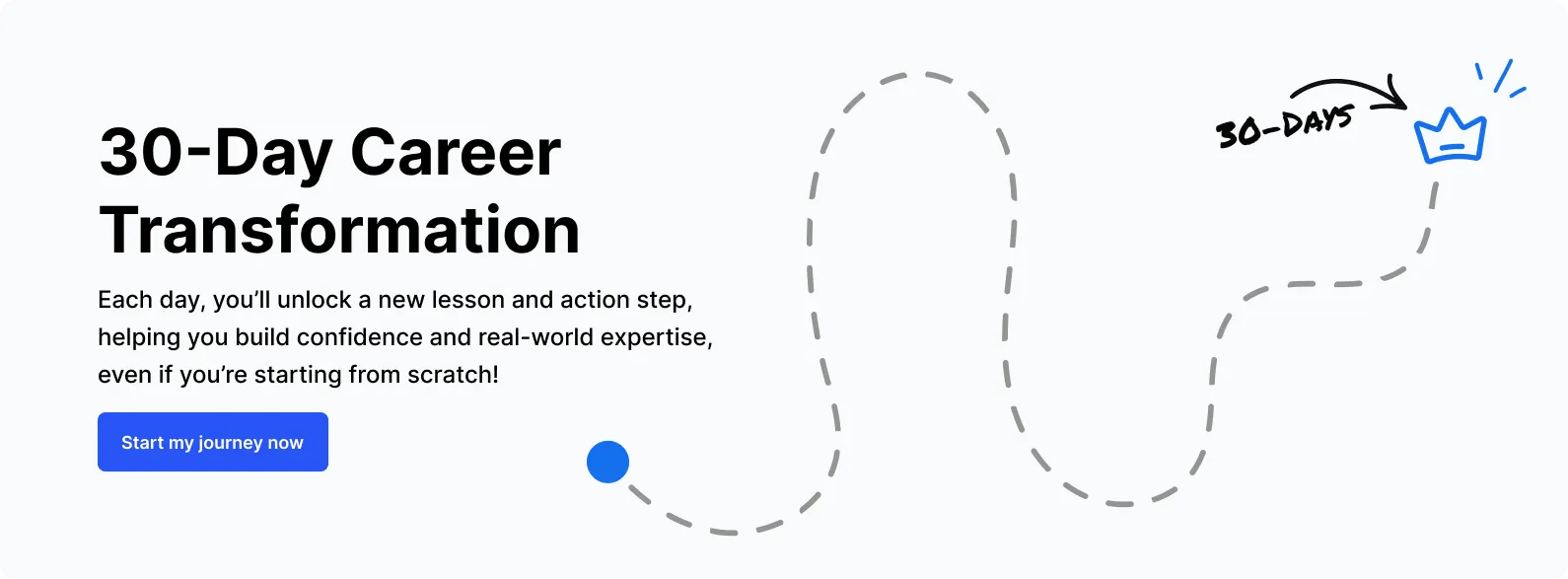Strategies to Adapt Skills and Competencies to Limited Job Markets
Boost your job market success with strategies to adapt skills, optimize resumes, network effectively, and gain practical experience. Learn more now!
Table of contents

Boost your job market success with strategies to adapt skills, optimize resumes, network effectively, and gain practical experience. Learn more now!
Finding a job can be tough when there aren’t many openings and competition is high. It’s a challenge many of us face, but it’s not insurmountable. By strategically adapting your job market skills, you can significantly improve your chances of success. In this article, we’ll delve into practical strategies to help you understand and thrive in a limited job market.

A limited job market features fewer job openings compared to the number of job seekers. The Bureau of Labor Statistics asserts that the U.S. market witnessed an increased unemployment rate of 4.1 in June 2024, with 6.8 million unemployed people. This scenario can arise due to economic downturns, industry-specific declines, or regional employment challenges.
Understanding this landscape is crucial for adapting effectively. By analyzing trends in job availability and sector growth, you can tailor your job search strategies to improve your chances of securing employment. For instance, industries experiencing growth, like tech or healthcare, often have higher demand for specific skills.
In a limited job market, skills such as data analysis, digital marketing, and project management become particularly valuable. Research from LinkedIn’s Workforce Report highlights that professionals with skills in data analysis are 20% more likely to receive job offers compared to those without such expertise.
Adapting your skills to meet these market demands is essential for enhancing your employability. For example, acquiring certifications in high-demand areas or gaining experience in emerging technologies can make you a more attractive candidate. This adaptability demonstrates to potential employers that you are flexible, resilient, and capable of handling various roles or tasks.
In a job market where opportunities are constrained and competition is fierce, it’s essential to employ strategic approaches to stand out and increase your chances of employment.

In the ever-evolving job market, staying relevant often hinges on acquiring and honing the right skills. When facing a limited job market, the ability to learn and adapt becomes even more crucial. This strategy not only broadens your opportunities but also enhances your appeal to potential employers. By focusing on the necessary job market skills, you can position yourself as a strong candidate even in competitive environments.
Take, for example, the experience of Célia Remédios. At 40, after losing her job, Célia was faced with a daunting career crossroads. Despite having a solid educational background and various certifications, she realized that her previous skills were not aligning with the current job market demands. This prompted her to rethink her professional trajectory and embrace a new challenge—web development.
Célia turned to the NoCode Institute, which proved to be a game-changer in her journey. With no prior knowledge of web development, she enrolled in their bootcamp and immersed herself in the world of coding and tech. "One of my best decisions so far!" Célia reflects. “Thanks to NoCode Institute and my new Web Development skills, I got back on track as a freelancer! Totally recommend NoCode Institute, not only for beginners but also if you already have some basics but need to refresh your ideas.”
Célia’s story underscores a critical lesson: learning the required skills can open new avenues, even if your previous experience seems unrelated. By gaining expertise in a high-demand area, she was able to pivot her career and secure freelance opportunities in a challenging job market. This highlights the importance of not just acquiring technical skills but also understanding which competencies are most valued in today's market.
The key is to identify and pursue skills that are in demand. This could include transferable skills like problem-solving and critical thinking, technical skills such as IT and data analysis, or operational skills in areas like sales and marketing. Additionally, customer service and leadership competencies are invaluable, as they demonstrate your ability to handle diverse roles and responsibilities.
Investing time and effort into learning these skills can make a significant difference. Evident from Célia’s experience, upskilling not only helps in securing job opportunities but also in building a resilient and adaptable career. Proactive learning and upskilling can improve your employment chances in a limited job market.
Key Takeaways:

In a competitive job market, standing out from the crowd requires more than just submitting a standard resume and cover letter. Optimizing your application materials can make a significant difference, particularly in a limited job market where every detail counts. Tailoring your resume and application to meet specific job requirements and highlight relevant skills can be the key to landing that coveted position.
Zak's journey offers a vivid illustration of how focusing on your application strategy can lead to success. Zak’s initial attempts at securing a role at Esri were met with repeated rejections. "I applied to Esri 64 times before getting hired," Zak shares. His persistence was admirable, but it was his refined approach that eventually made the difference. After many stinging rejections and lessons learned, Zak realized that his generic applications were failing to capture the attention of recruiters.
Determined to improve his chances, Zak decided to optimize his application process. Instead of applying for multiple positions at once, he focused on a few roles that truly matched his interests and skills. He customized his resume and cover letter for each application, tailoring them to reflect the specific job requirements and his enthusiasm for the role. This approach ensured that his applications were not only relevant but also demonstrated a genuine interest in the positions he was applying for.
In addition to refining his application materials, Zak leveraged LinkedIn to network strategically. He connected with professionals in the industry and sought advice on how to make his application stand out. "I logged in, made an account, and started adding connections, fast," Zak recounts. His proactive networking efforts led to valuable conversations with Esri team members and recruiters, which helped him gain insights into the company and its culture. This personal touch and genuine interest were crucial in making him a memorable candidate.
Zak’s experience underscores the importance of optimizing your resume and job application to align with specific job requirements. Customizing your application and understanding the employer’s requirements can significantly improve your chances of getting noticed. His success in landing a role at Esri was not just about persistence but also about the strategic improvements he made to his application approach.
Key Takeaways:

In a competitive and limited job market, networking can be the game-changer you need to stand out. The traditional approach of sending out countless job applications may not always yield the desired results. Instead, strategically building and leveraging professional connections can often prove to be a more effective path to securing job opportunities.
Take the experience shared by a job seeker on Reddit who shifted their strategy after six months of frustration. Initially focused primarily on submitting job applications, they were disheartened by the slow progress and lack of results. This individual decided to pivot by embracing a more strategic networking approach, inspired by the book Never Search Alone and its associated job hunt cohort.
"I had a post where I showed my job hunt progress after 6 months," they explain. "After creating that post, I decided I really needed to switch up my job hunt strategy because what I was doing obviously wasn't working." The key realization was that networking was not just a supplementary activity but a central component of an effective job search strategy.
The difference in efficiency was striking. According to their findings, networking required approximately two weeks of effort to secure two job offers, compared to 13 weeks of effort through job applications alone. "Networking is more efficient & effective," they concluded. The numbers speak for themselves: connecting with people in your desired field and conducting informational interviews can significantly streamline the job search process.
This shift in strategy underscores the importance of prioritizing networking over the sheer volume of job applications. By investing time in building meaningful connections, you tap into hidden job markets and gain insights that are not always visible through standard job postings. Networking allows you to engage with industry professionals, learn about unadvertised opportunities, and receive referrals that can give your application a crucial edge.
This Reddit user’s story highlights that networking isn't merely about quantity but quality and strategy. Effective networking is about having genuine conversations, understanding industry trends, and seeking advice from those who are already in the roles you aspire to. Networking helps open closed doors in a limited job market where opportunities are scarce.
Key Takeaways:

In a job market with fewer opportunities, staying updated with industry trends can give you a distinct advantage. Understanding the current state of your field and knowing what skills and qualifications are in demand allows you to tailor your job search strategy effectively.
A compelling example of this strategy in action comes from Lailanie J., a Senior Business Analyst who successfully found a new job in just four months by leveraging LinkedIn. In her LinkedIn article, she shared her journey from taking early retirement after a long career at a health insurance company to landing a new position with a better work-life balance. Her experience offers valuable insights into how staying informed about industry trends and utilizing professional platforms can expedite your job search.
“I previously worked at a large health insurance company for over 20 years,” Lailanie recalls. After taking an Early Retirement Plan, she focused on updating her LinkedIn profile, connecting with relevant industry experts, and following career guidance from professionals like J.T. O'Donnell and Michaela Alexis. This approach helped her keep a tab on the industry trends while exploring the job market.
Lailanie’s strategy highlights the importance of maintaining an active presence on professional networking sites and engaging with industry-specific content. By updating her LinkedIn profile and actively participating in career-focused groups, she positioned herself at the forefront of her field.
One key takeaway from her experience is the significance of aligning your job search with current industry demands. For instance, Lailanie’s decision to refine her resume by focusing on relevant skills and experiences and adding a "Technology Knowledge" section, was crucial. This adjustment made her resume more compatible with Applicant Tracking Systems (ATS), commonly used to filter job applications. By incorporating the right keywords and skills, she increased her chances of making it through the initial screening process.
Lailanie’s success in her job search is a combined result of staying updated with industry trends and actively engaging in professional networks.
Key Takeaways:

Attending industry conferences and events is more than just a networking opportunity—it’s a chance to immerse yourself in the latest trends, make valuable connections, and position yourself as an active participant in your field. Industry events often serve as a catalyst for career advancements, offering insights and networking opportunities that can significantly impact your job search and career trajectory.
A vivid example of this comes from Allen Chou’s remarkable journey into the world of game development. Allen, who had always dreamed of working at Naughty Dog, a prestigious game studio, shares how attending the Game Developers Conference (GDC) in 2013 played a crucial role in landing his dream job.
In his detailed recount, Allen explains his and his friend’s experience at GDC, "We were very lost and did not know what to do in the midst of such a massive event." Their approach was initially casual, but a chance encounter with a recruiter from Naughty Dog turned the event into a pivotal moment in Allen’s career.
The recruiter invited Allen and his friend to meet a lead programmer from Naughty Dog, leading to a valuable conversation about preparing for a career in game development. Allen’s story highlights a crucial aspect of attending industry events: the importance of being open to opportunities and making connections, even in unplanned situations.
The impact of this meeting was profound. After maintaining contact with the recruiter, Allen applied for a job at Naughty Dog earlier than planned. This proactive approach and the relationship built at GDC led to a series of accelerated interviews and, ultimately, an offer from his dream company. "I had to take classes during the day and study for the interview at night," Allen shares. This period of intense preparation was supported by the initial connection made at the conference, showcasing how industry events can lead to substantial career advancements.
Allen’s experience highlights how industry conferences and events offer a unique opportunity to meet key industry players, gain insider knowledge, and stand out in a crowded job market. Engaging with industry professionals and participating in relevant discussions increases your chances of making meaningful connections that can lead to job offers and career growth.
Key Takeaways:

Gaining practical experience is a critical step in turning theoretical knowledge into real-world skills. Whether through internships, freelance work, or volunteer opportunities, practical experience provides a hands-on understanding of your field, refines your skills, and makes you a more attractive candidate to employers. This real-world exposure is not just about applying what you've learned but also about adapting to industry standards and workplace dynamics.
One compelling example of how practical experience can pave the way to a full-time role comes from the experiences shared by Elena Zimbakova, Nikola Jovanov, and Aleksandar Radeski in their internships at Codeart. Their stories illustrate how turning an internship into a full-time position requires a strategic approach, dedication, and a proactive attitude.
1. New Perspective on Working Life: "The internship helped me start observing things through the prism of an employed person," Elena Zimbakova reflects. This shift in perspective is crucial for anyone looking to transition from academic learning to a professional environment. Internships offer a unique opportunity to experience day-to-day operations, understand workplace dynamics, and develop skills that go beyond classroom theory.
2. Practical Exposure: "Getting a firsthand look at what it’s really like to work a regular job is one of the main advantages of an internship," Nikola Jovanov explains. By working closely with seasoned professionals, interns gain insight into industry practices and learn to deal with the complexities of a real job. This exposure is invaluable, providing a smoother transition from an intern to a full-time role by familiarizing oneself with the work environment and expectations.
3. Test Your Interests: Aleksandar Radeski sees internships as a “preliminary test drive” into the tech world. He notes that his three-month stint allowed him to test his passion for the field and confirm his commitment to it. "The thorough program that we were led through combined with the wonderful team of experts solidified my passion for this field as a permanent one," Aleksandar shares. This experience underscores the importance of internships as a means to validate your career interests and assess whether a particular field aligns with your long-term goals.
4. Practical Experience Can Lead to Full-Time Roles: As Aleksandar observed, "The transition from intern to full-time employee was seamless," thanks to the comprehensive training and responsibilities handled during the internship. This ease of transition is a testament to the effectiveness of well-structured internship programs that mirror the actual work environment.
The stories from Elena, Nikola, and Aleksandar also reveal key strategies for maximizing the value of an internship. Nikola advises consistency and participation in after-work activities, which not only enhance skills but also build strong professional relationships. Elena emphasizes being proactive and adding value to the team, while Aleksandar highlights the importance of embracing feedback and staying engaged even during idle times.
Key Takeaways:
Job hunting in a limited job market requires strategic adaptation and resilience. You can enhance your employability and stand out from the competition by honing essential skills, optimizing your resume, networking effectively, staying updated with industry trends, and gaining practical experience. Each strategy plays a crucial role in turning challenges into opportunities and ensuring you remain a strong contender in a competitive landscape.
If you're looking to upskill and align with market demands, consider exploring the resources and programs offered by the NoCode Institute. Their comprehensive bootcamps and courses are designed to equip you with the skills needed for today’s job market. Whether you’re starting fresh or looking to pivot into a new field, NoCode Institute can be a valuable partner in your career journey.

Looking to re-invent yourself and turn your talent into a career? Stay up to date with the latest.